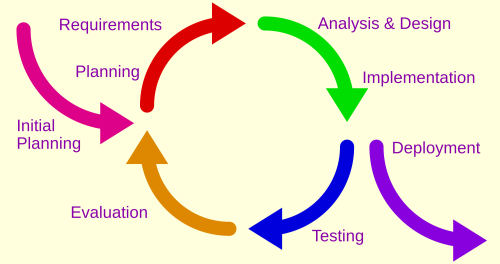Methodological considerations of my research
by jimmykeogh30

My research method is a frame analysis approach. Frames may be described as ‘collective patterns of interpretation with which certain definitions of problems, causal attributions, demands, justifications and value-orientations are brought together in a more or less consistent framework for the purpose of explaining facts, substantiating criticism and legitimating claims’ (Rucht and Neidhardt 2002:11). I believe this to be the most effective method to document competing interpretations of the ‘right to die’.
The highly discursive EPAS debate centres on heated contestations amongst several actor
types relating to the interpretation of certain rights. The various elements of the rights
entitlement narrative reflect the input provided by legal, political, and social arenas, including the media. In particular this input pertains to the question of the individual’s right to recognition (e.g., of autonomy, experiences of suffering, loss of dignity), equal opportunity, and representation or voice before the law. Polemic interpretations of (in)justice highlight some fundamental issues at the core of this debate. A framing method proves the ideal way to track this ever-expanding public discourse.
I will employ a qualitative interviewing method to gather these conflicting interpretations. This will entail carrying out semi-structured interviews with those at the heart of this debate, consisting of influential legal and political actors as well as those directly seeking the right to die or those acting on their behalf. The advantage of a qualitative interview approach for my study lies in its facilitation of in-depth analysis of participant’s subjective experiences, much of which will undoubtedly be highly emotive, sensitive, and outside the realm of rigid definable variables. This research method enables the cultivation and maintenance of sensitivity to the social, cultural, and the historical caveats of this debate, impossible to consider with quantitative methods.
Using this data, my analysis will follow the theoretical recommendations of Axel Honneth, who calls for a negative reconstruction of society. This stipulation permits the definition of justice to be ‘provided by the criteria of the experiences of injustice rather than by a reconstruction of our intuitions of justice’ (2007: 95).
Once my empirical data is assembled, I will juxtapose those interviewees’ viewpoints to
definitively identify the fundamental contestations within this debate. Each participant’s
justificatory reasoning will reflect both the ‘for’ and ‘against’ rationalisations ascribed to the right to die. A framing technique enables researchers to assign normative value to each of these competing claims allowing for the formulaic deconstruction of the justice/injustice axis of this debate. The legitimacy of each competing claim for rights entitlement will be philosophically mediated to test whether it matches contemporary society’s expectations and the will of the majority of its people. Honneth’s supposition of reconstructing a fairer society can only be met once injustice claims are brought together in a coherent framework for deliberation. From here, a hierarchal ordering of these competing claims in accordance to their resonance with society will conclusively establish whether or not a call to alter existing legislation on the right to die is justified. That is the crux of my research.
